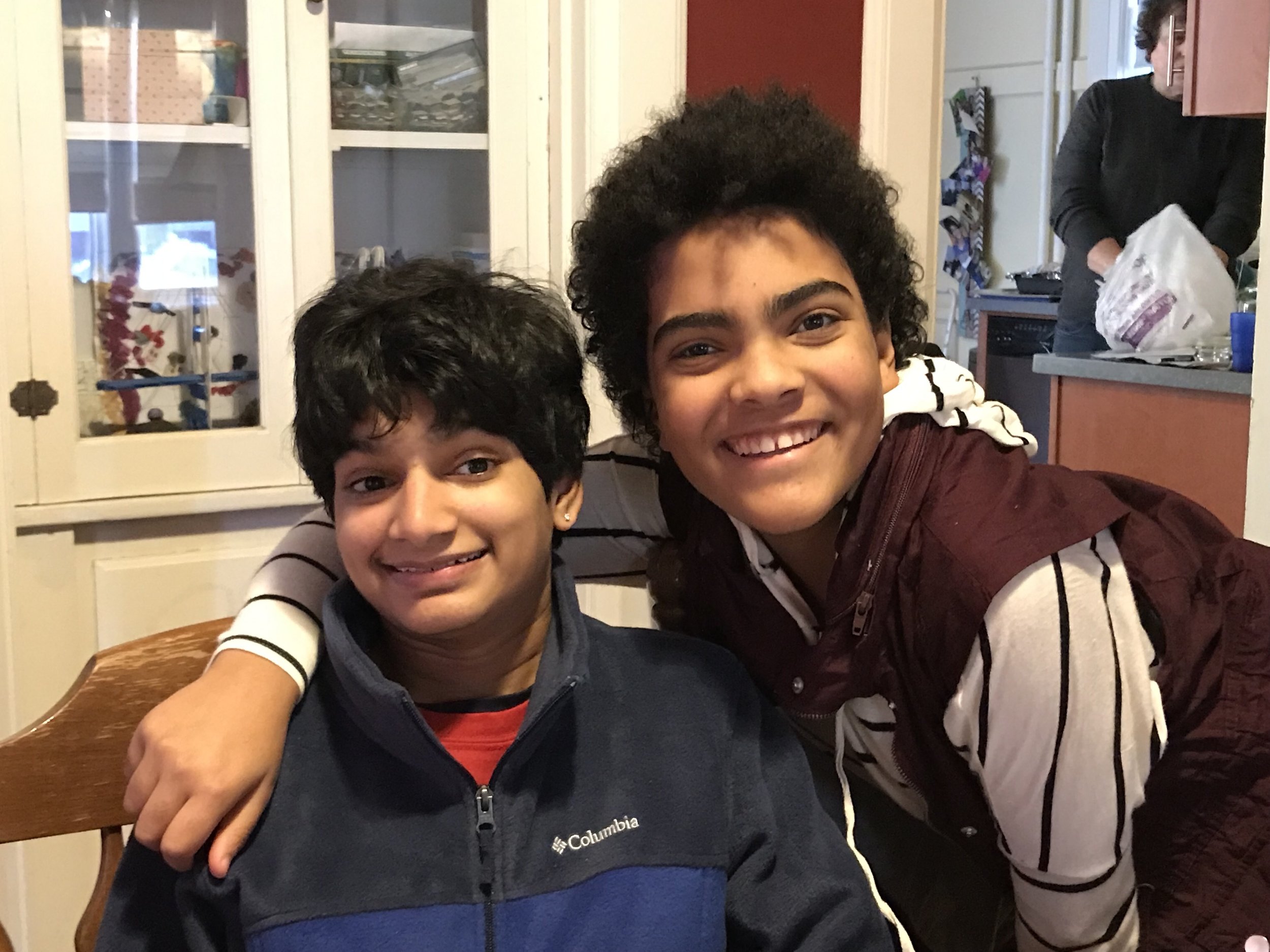Grace (l) with her sister (r) at Thanksgiving dinner..
The current bipartisan deal sets spending caps on essential and already underfunded programs, including Medicaid and education for kids with disabilities, that impact millions of Americans – including our Little Lobbyists families. As the budget process moves forward, here’s what’s at stake for Grace Dow:
I am a writer and disability advocate who has cerebral palsy. On my blog, I share personal stories as well as information about various disability rights issues. In the future I hope to become a published author. In my spare time, I enjoy reading, watching movies and following the Boston Red Sox and Pittsburgh Penguins.
I have Cerebral Palsy and I was born prematurely in India. I rely on a walker and a wheelchair for my mobility. Currently, I have private health insurance and Medicaid. Medicaid provides coverage for home and community-based services. Home and community-based services have allowed me to live in my own apartment since 2020. This was a dream come true for me. I am able to be an active member of my community because of Medicaid. I enjoy going to the movies, the grocery store, sports games, and traveling. None of this would be possible without Medicaid. Without Medicaid I would rely on my parents to provide all of the care I need or risk being forced into a long-term care facility.
While we’re grateful the Biden Administration successfully protected Medicaid from being cut, it is already deeply underfunded. At least a million people are already on waiting lists for Home and Community-Based Services (HCBS), medical costs continue to rise, and care for our families could be compromised. How would that affect you?
Grace bending down to touch a dolphin at an aquarium.
Medicaid cuts would be devastating to me. Without Medicaid, life as I know would be gone. I would lose my PCA (personal care assistant) services. Additionally, I would have to move back home with my parents. I would rely on them to provide all of the care I need or risk being forced into a long-term care facility.
The Individuals with Disabilities Education Act (IDEA) has NEVER been fully funded. Currently, the Federal government pays only 16% of IDEA costs. Capping spending at less than the rate of inflation will mean fewer special education teachers and inclusion personnel in already struggling classrooms. How would that have affected you when you were younger? And how will that affect children today?
IDEA allowed me to attend public school. I loved school and had wonderful teachers. I was fortunate to have a wonderful paraprofessional whom I worked with for a decade. Without IDEA, I wouldn’t have received the support I needed at school. I was able to go on field trips, and participate in all kinds of activities in the classroom.
Republicans claim capping spending is necessary to cover the U.S. deficit, but that’s just not true. House Republicans have introduced legislation to make permanent the “Trump tax cuts” that will cost the U.S. $1.7 trillion by the end of this year.
Our kids with disabilities shouldn’t be asked to cover the U.S. debt to pay for the cost of tax cuts to the ultra rich. We can’t let that happen.








